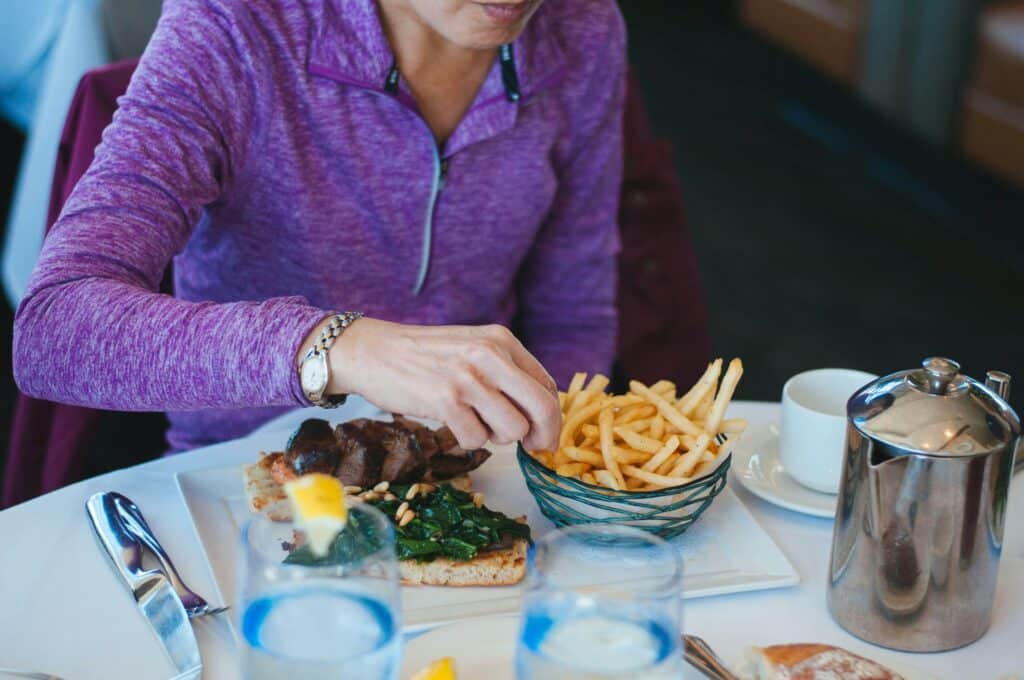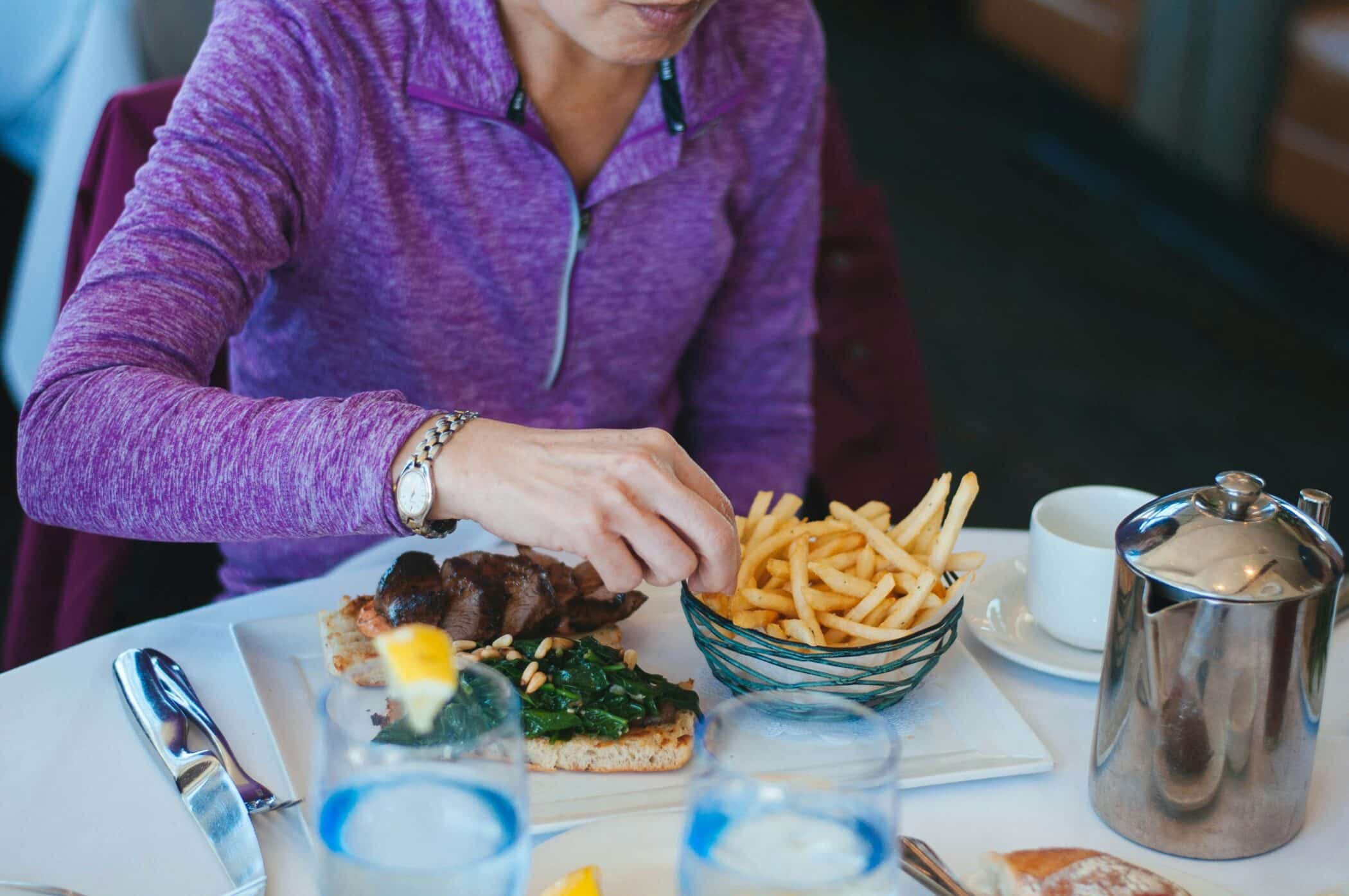
Between being aware of macronutrients and hydration, when you are an athlete there is a lot to consider. Optimizing your athletic performance with nutrition is for sure something that you would like to achieve. So how how athletes make meal plans will define their top-performing lifestyle.
Athletes’ bodies usually have to face a high level of stress, eating properly is incredibly important. When they want to achieve proper nutrition the easiest way is to focus on the five main groups of food.
Fruits, protein, grains, dairy, and of course vegetables are vital nutrients in the diet. Once you know that they have to become a habit, you should talk to a specialist to help you find the diet based on your needs and goals. We will give you some ideas and make your journey easier.
Table of Contents
Why is a meal plan important?
It is important to delve into detail on how athletes make meal plans so they can have a good balance between food and sports performance. Meal plans are important and they provide great benefits. Athletes feel guided and supported to make the right decisions for their health.
A great meal plan is important because it helps athletes stay on track, they know the correct and proper portions and sizes and how to space out meals. Nutrient timing is crucial for great performance.
Meal plans sometimes take hours to prepare, but once you do it, they are worth it. It must follow the lifestyle or dietary preferences of the athlete, so they can follow it easier.
Another thing that people shouldn`t forget is that for athletes is very important that a meal plan supports their performance goals, and that there is the right level of macronutrients.
Tips for creating a meal plan for athletes
Besides hydration and macronutrients, athletes have a lot of things to think about. Some steps can help you reach your goals.
1. Keep the big picture in mind
When creating a meal plan, things that should be closely examined are age, personal goals, and different sports. For example, soccer players need to up their carbohydrate intake, or weight lifters need to increase their creatine intake. The meal plan has to be right for each athlete and it has to be updated regularly, so you can be sure that nutrition helps enhance athletic goals.
2. Always have a post-workout plan
This is crucial for recovery, so it is important to incorporate it into your meal plan. Athletes should consume 15-30g of protein and 15-90g of carbs post-workout so recovery can be faster, fuel stores will recharge faster, and muscles will have a synthesis. Always include hydration in your plan.
3. Variety is of a great importance
Carbs, fat, and proteins are essential for an athlete’s meal plan, but it is also crucial to have a variety of foods to provide a surplus of nutrients. Adding vegetables and fruits will improve training and recovery time. In addition, it will make your immune system stronger. You will benefit from the high fiber content, so be encouraged to limit your consumption of refined grains and sugars, and power up on whole-grain sources instead.
4. Stick to the familiar on a game day
Stick with your usual diet instead of trying something new when game day arrives. This way you won`t experience any negative physical effects and you will perform your best. If you are traveling for an away game, pack a variety of drinks and foods so you can have healthy options and not rely on the food provided there.
5. Find what works for you
Listen and understand yourself, how you feel, what is working or not working, and what is your food preference. That way you can best optimize your meal plan. That said, your meal plan should evolve to fit your needs. That way you will perform your best.
Suggestions for better results
You need to make sure that you can stick to your plan. That is sometimes not easy. But, it is important to be persistent so the results can follow. Here is how to do so:
1. Prepare your meals two, or three days in advance
When you train all the time, you might easily fall into unhealthy habits. That can be a problem because convenience will have an impact on the right nutrition. That said, it is important to plan. Before you go grocery shopping, make a list that will cover your nutritional needs. Stick to your list.
Depending on how many calories you consume daily and your needs, you should have:
- 20-30 percent of your daily calories should come from fats, such as avocados, seeds, nuts, olive oils, and nut butter.
- 50-60 percent should come from carbohydrates, such as fruits, whole grains, and vegetables.
- 15-25 percent should come from proteins, such as poultry, beans, and fish.
2. Hydrate as much as you can
A hydration plan is also something important. When you have it you will get the most out of your training and recovery. Keep in mind the duration, intensity, fitness level, environmental conditions, and frequency of the training. Sometimes even a little bit of weight loss from sweat can harm your performance. Besides water, if your training session is long, fill up your electrolytes with low-sugar sports drinks.
3. Mentally prepare for a big event
Every athlete, their coach, and everyone around them knows that nutrition has a great impact on the training process. Try to switch to food as fuel mentally, especially before a big event. Good performance comes from exercising, a winning mindset, and nutrition.
4. Eat frequently and never skip breakfast
Eat around thirty to sixty minutes after you wake up. Find a good source of lean, quality protein for your power breakfast. Good choices are quinoa, turkey sausage, eggs, stell-cut oatmeal, and organic dairy. After breakfast, eat every four hours. Don`t wait long to have your meal. That way you will have the energy you need and you will minimize the risk of injury. Optimal muscle growth and repair will come from eating protein at regular intervals.
5. Don`t forget the flavors
It is important to remember to have flavorful food. Unique spices and cultural dishes can provide delicious meals for you. It is always better to add spices instead of fat or salt.
6. Eat your meals based on your sport
Nutritional needs will be different depending on your sport. If you are a runner, you will need higher carbs intake compared to weight lifters who will need more protein. Whole grains, fruit, starchy vegetables, and legumes are great sources of carbs and will provide you with the energy you need for your training.
7. Boost your brainpower and energy with caffeine
Some athletes start their day with coffee. They say that it is an excellent mental boost. If you think that might work for you, try it for a while and check. Caffeine might provide long-term benefits to our memory and thinking skills. But, as with everything, be sure not to have too much.
8. Use supplements and vitamins to fill in the gasps
Take vitamins that the food can`t provide for you. That way you will not worry about the necessary nutrients. Your body will always have enough vitamins to `work` properly.
9. Eat to help your body
You need to replenish nutrients within thirty minutes of a long-distance bike ride or long run. One of the ways to do that fast is a nutritious shake that is easy to digest. Nut or soy milk can help you with that. Also, berries, bananas, peanut butter, plant-based protein powder, and similar options.
10. Don`t fix something that works
Last but not least, once you find the plan that worlds for you, stick with it. Of course, tailor it a little if needed, but don`t make big changes. If you are getting enough energy, have no digestive problems, and have no food intolerance – you are at the right place. So, stick with what you know that you are comfortable with.
Summary
Good nutrition is very important for athletes` performance and lifestyle. But, it can also be individualized and flexible depending on your taste. Follow your body first before you decide to follow a certain diet.
Choose healthy food, the food that gives you energy and makes you feel good. Even though athletes sometimes push their bodies to the limit, nutrition has a primary role in their success.
Eating like an athlete means that you will think about every bite you take in as something that gives your body nutrients and health. Find the balance that works for you and your mind and body will be fueled for excellent performance in all that you do.

